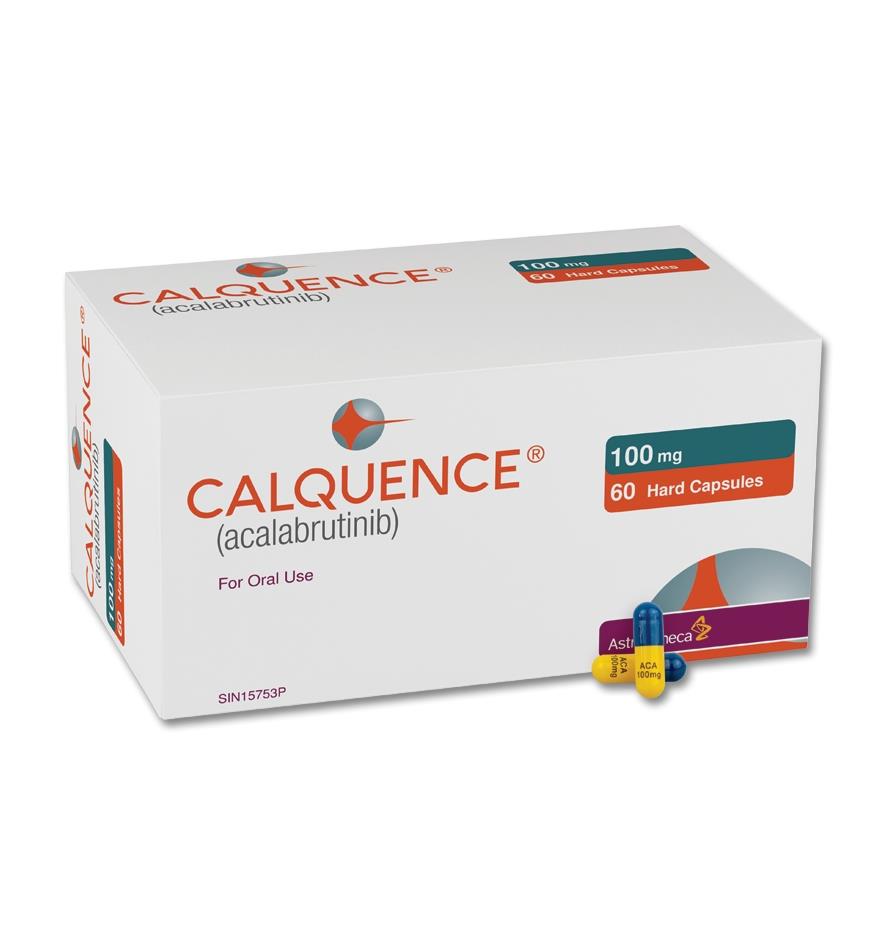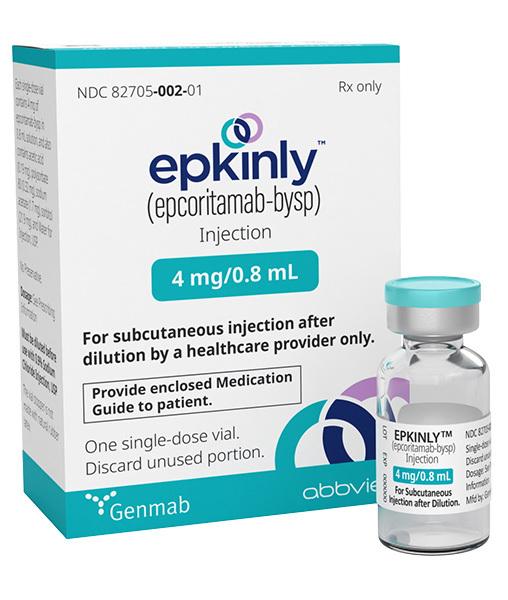Calquence (acalabrutinib) vs Epkinly (epcoritamab-bysp)
Calquence (acalabrutinib) vs Epkinly (epcoritamab-bysp)
Calquence (acalabrutinib) is a Bruton's tyrosine kinase (BTK) inhibitor used primarily in the treatment of certain types of B-cell malignancies, such as chronic lymphocytic leukemia (CLL) and mantle cell lymphoma (MCL). Epkinly (epcoritamab-bysp), on the other hand, is a bispecific antibody designed to target both CD20 on B-cells and CD3 on T-cells, and is being investigated for use in various B-cell non-Hodgkin lymphomas. When deciding between these medications, it is crucial to consider the specific type and stage of lymphoma, previous treatments, potential side effects, and the mechanism of action of each drug, as well as consulting with a healthcare provider to determine the most appropriate treatment option based on individual medical history and current health status.
Difference between Calquence and Epkinly
| Metric | Calquence (acalabrutinib) | Epkinly (epcoritamab-bysp) |
|---|---|---|
| Generic name | Acalabrutinib | Epcoritamab-bysp |
| Indications | Mantle cell lymphoma, chronic lymphocytic leukemia, small lymphocytic lymphoma | Under investigation for non-Hodgkin lymphoma |
| Mechanism of action | Bruton's tyrosine kinase (BTK) inhibitor | Bispecific antibody targeting CD3 on T-cells and CD20 on B-cells |
| Brand names | Calquence | Epkinly |
| Administrative route | Oral | Subcutaneous injection |
| Side effects | Headache, diarrhea, muscle pain, bruising, fatigue, and others | Currently under investigation; specific side effect profile has not been fully established |
| Contraindications | Hypersensitivity to acalabrutinib or its excipients | Not fully established; likely hypersensitivity to epcoritamab-bysp or its excipients |
| Drug class | Small molecule kinase inhibitor | Monoclonal antibody |
| Manufacturer | AstraZeneca | Genmab and AbbVie |
Efficacy
Efficacy of Calquence (Acalabrutinib) in Treating Lymphoma
Calquence (acalabrutinib) is a novel Bruton's tyrosine kinase (BTK) inhibitor that has shown significant efficacy in the treatment of certain types of lymphoma, particularly in mantle cell lymphoma (MCL) and chronic lymphocytic leukemia (CLL)/small lymphocytic lymphoma (SLL). In clinical trials, acalabrutinib has demonstrated high response rates in patients with relapsed or refractory MCL. The approval of acalabrutinib for MCL was based on overall response rates observed in clinical studies, with many patients achieving a complete response. Additionally, acalabrutinib has been evaluated in CLL/SLL patients, showing promising results in terms of progression-free survival and overall response rates compared to standard treatments.
While acalabrutinib is not currently approved specifically for other types of lymphoma, ongoing research and clinical trials may expand its indications if its efficacy is proven in additional settings. It is important to note that the use of acalabrutinib in lymphoma types other than MCL and CLL/SLL would be considered off-label, and the efficacy in these other settings has yet to be established through rigorous clinical trials.
Efficacy of Epkinly (Epcoritamab-bysp) in Treating Lymphoma
Epkinly (epcoritamab-bysp) is an investigational bispecific antibody that targets both CD3 on T-cells and CD20 on B-cells, designed to engage the body's immune system to fight against B-cell lymphomas. While epcoritamab is still under clinical investigation, early clinical trial results have shown promise in the treatment of non-Hodgkin lymphoma, including diffuse large B-cell lymphoma (DLBCL) and follicular lymphoma. The efficacy of epcoritamab is being evaluated based on its ability to induce complete and partial responses in patients with relapsed or refractory forms of these diseases.
As epcoritamab is still in the development phase, its approval and availability for the treatment of lymphoma are contingent upon the outcomes of ongoing clinical trials. The efficacy data from these trials will be crucial in determining the potential role of epcoritamab in the therapeutic landscape of lymphoma. If approved, epcoritamab could offer a novel mechanism of action that leverages the patient's own immune system to target and eliminate lymphoma cells.
Regulatory Agency Approvals
Calquence
-
European Medical Agency (EMA), European Union

-
Food and Drug Administration (FDA), USA

-
Health Canada

-
Pharmaceuticals and Medical Devices Agency (PMDA), Japan

-
Therapeutic Goods Administration (TGA), Australia

Epkinly
-
Food and Drug Administration (FDA), USA

Access Calquence or Epkinly today
If Calquence or Epkinly are not approved or available in your country (e.g. due to supply issues), you can access them via Everyone.org.
How it works

Make an enquiry
Choose the medicine you want to buy, answer a couple of questions, and upload your prescription to speed things up. We’ll get back to you within 24 hours.


Make an enquiry
Choose the medicine you want to buy, answer a couple of questions, and upload your prescription to speed things up. We’ll get back to you within 24 hours.


Breeze through the paperwork
We'll guide you through the required documents for importing unapproved medicine, ensuring you have all the necessary information.


Get a personalized quote
We’ll prepare a quote for you, including medicine costs and any shipping, administrative, or import fees that may apply.


Receive your medicine
Accept the quote and we’ll handle the rest - sourcing and safely delivering your medicine.

Some text on this page has been automatically generated. Speak to your physician before you start a new treatment or medication.
Let's talk
If you have any questions, call us or send us a message through WhatsApp or email:
Contact us




